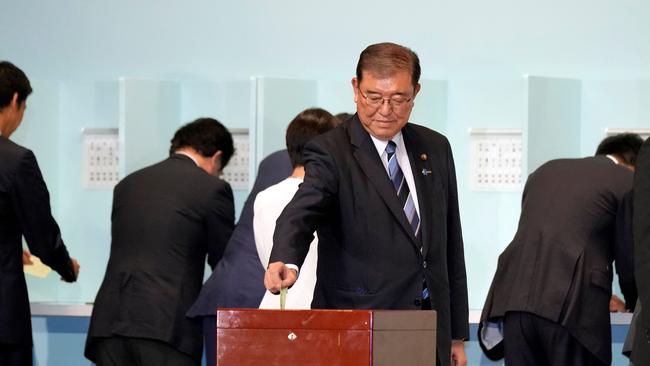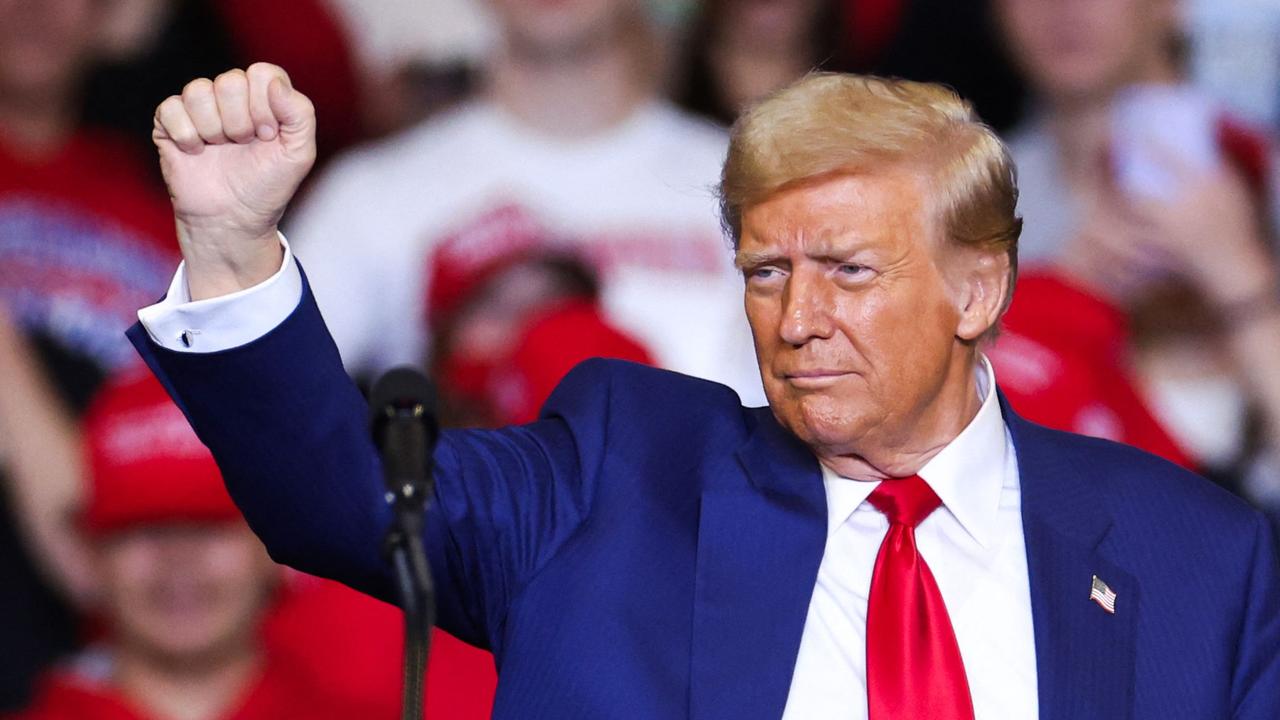Former defence minister Ishiba to be Japan’s next PM
The 67-year-old beat hawkish Sanae Takaichi, who would have been the country’s first ever woman leader, in a run-off.

Former defence minister Shigeru Ishiba will become Japan’s next prime minister after winning the ruling party’s leadership vote on Friday.
The official count showed Mr Ishiba, 67, beat hawkish Sanae Takaichi, who would have been the country’s first female leader, in a run-off.
After his victory was announced at Liberal Democratic Party headquarters in Tokyo, Mr Ishiba smiled and took off his glasses to wipe away tears, bowing repeatedly as his associates congratulated him.
“I will do my utmost to believe in the people, to speak the truth with courage and sincerity, and to make this country a safe and secure place where everyone can live with a smile on their face once again,” he said in a short speech.
Mr Ishiba has previously been close to the top job, including in 2012 when he lost to nationalist Shinzo Abe, Japan’s longest-serving leader who was assassinated.
The military model-maker with an affinity for 1970s pop idols said his experience tackling tough social issues, such as agriculture reforms, qualified him for the job.
As scandals fuel public discontent with the LDP, “the tide is in favour of Ishiba and his ‘fair and square’ attitude”, Yu Uchiyama, a University of Tokyo politics professor, said ahead of the vote.
The conservative party has governed almost uninterrupted for decades and holds a majority, meaning Mr Ishiba will be elected prime minister by parliament on Tuesday.
As prime minister, Mr Ishiba must face down regional security threats, from an increasingly assertive China, and its deepening ties with Russia, to North Korea’s banned missile tests.
At home, he will be tasked with breathing life into the economy, as the central bank moves away from decades of monetary easing that has slashed the value of the yen.
In the first round of voting, a record nine candidates were in the running after the LDP’s long-powerful factions disbanded this year over a funding scandal.
Ms Takaichi, the Economic Security Minister, is a vocal nationalist popular with the LDP’s conservative wing. The 63-year-old was close to Abe, whose supporters are still powerful.
In third place behind Mr Ishiba and Ms Takaichi was former environment minister Shinjiro Koizumi, a keen surfer whose father was prime minister in the 2000s.
LDP leaders are in office for three years and can serve up to three straight terms. Unpopular Prime Minister Fumio Kishida did not run for re-election.
On the streets of Tokyo, 72-year-old retiree Yasumi Fujino said she was “concerned about China” and hoped “the next person will focus on diplomacy”.
“I understand that the times call for defence spending with the thing about Russia’s plane and China and all that,” said Yuji Ikeda, also 72. “But I feel we spend too much on national defence now. I am interested in what the next person would do in terms of policy for seniors.”
The LDP’s main opposition parties are rarely seen as viable alternatives.
During his term, Mr Kishida has taken steps to double Japan’s defence spending, opening the door for military exports as the LDP seeks to revise the country’s pacifist post-war constitution.
He welcomed Ukrainian President Volodymyr Zelensky to a G7 summit in Hiroshima and has strengthened Japan’s often testy ties with neighbour South Korea.
But his rule was also tarnished by scandals, voter anger over rising prices, and sliding poll ratings.
Mr Ishiba’s push to boost the military and call for the creation of an Asian NATO could rile Beijing, but he has been careful with his words concerning China. He argues that Japan’s military should be able to take a stronger response when territorial airspace or waters are breached.
At present, a warning shot is the only option, and China is “well aware” of that, he has said.
Although he is relatively popular with the public, Mr Ishiba has made four failed bids to lead the LDP.
For a long time he alienated party heavyweights with his “outspoken criticism of LDP policies under Abe”, Professor Uchiyama said.
But recently Mr Ishiba has been “vocal about the need for the LDP to turn over a new leaf when it comes to the funding scandal and other issues”, which may have worked in his favour.
He has also proposed creating a government agency in charge of disaster prevention in the earthquake-prone country, which is also frequently hit by typhoons and heavy rains.
AFP


